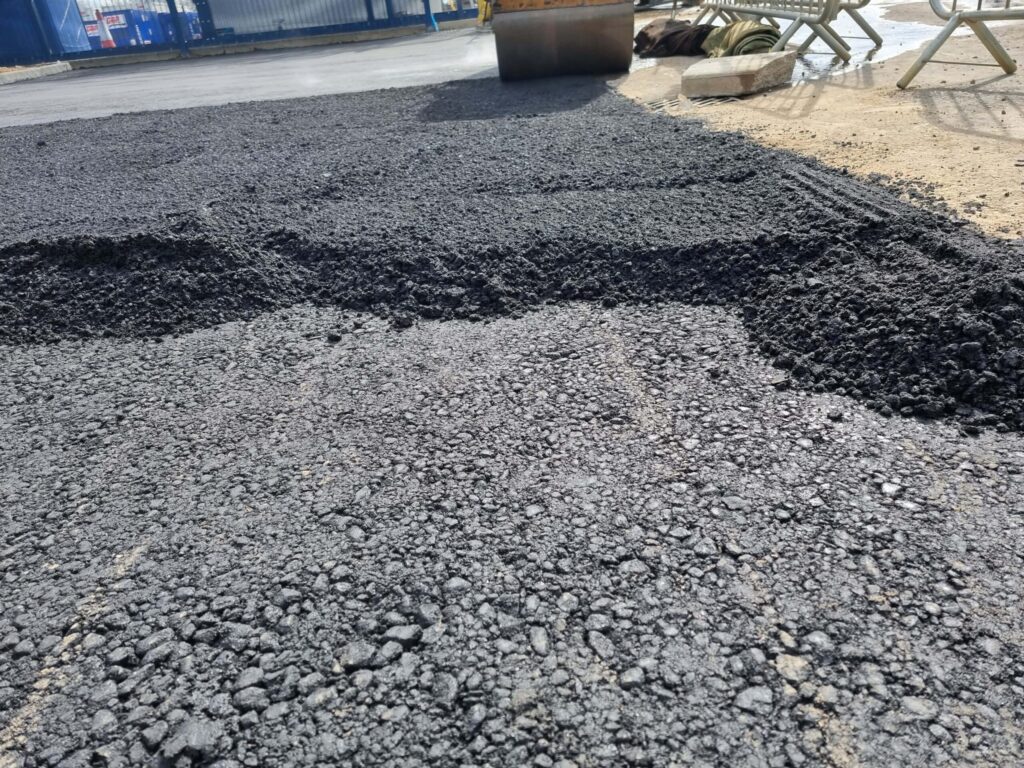Tarmac and Urban Planning: Shaping Sustainable Cities
Introduction: Urban planning is pivotal in creating sustainable, efficient, livable cities. Recently, there has been a growing emphasis on incorporating eco-friendly and sustainable materials into urban development projects. Tarmac, a versatile and durable surfacing material, has become a key player in urban planning, contributing to the development of sustainable cities. In this blog post, presented by Lakenheath Driveway Services, we will explore the relationship between tarmac and urban planning and how this material shapes sustainable cities.
The Role of Tarmac in Urban Planning
- Improved Transportation Infrastructure: Tarmac is the material of choice for roads, highways, and urban streets. Its smooth and durable surface enhances transportation efficiency, reduces vehicle wear and tear, and minimises fuel consumption due to reduced rolling resistance. Well-planned road networks with tarmac surfaces facilitate better traffic flow, reducing congestion and associated pollution.
- Enhanced Public Transportation: Tarmac is widely used for runways, taxiways, and aprons at airports, ensuring the smooth operation of air travel. Accessible airports are essential for efficient public transportation, connecting cities and fostering economic growth.
- Sustainable Urban Mobility: Tarmac’s use in pedestrian walkways, cycling paths, and public transit stations contributes to sustainable urban mobility. These well-paved surfaces encourage people to choose environmentally friendly modes of transportation, reducing their reliance on private cars.
- Urban Green Spaces: Tarmac can be used in park paths and recreational areas, offering accessible and well-maintained spaces for residents to enjoy. Urban green spaces are essential for a city’s livability and residents’ well-being.
Tarmac’s Sustainable Features
- Durability: Tarmac is known for its long lifespan, reducing the need for frequent resurfacing and repairs. This longevity translates to cost savings and fewer disruptions during maintenance.
- Recyclability: Tarmac is a recyclable material. Old asphalt can be reused to produce new tarmac, minimising the environmental impact of road resurfacing projects.
- Energy Efficiency: The smooth surface of the tarmac reduces vehicle fuel consumption due to lower rolling resistance, contributing to reduced greenhouse gas emissions.
- Stormwater Management: Permeable tarmac surfaces allow rainwater to infiltrate the ground, reducing surface runoff and the risk of flooding in urban areas.
- Cool Roof Effect: Light-colored tarmac can help mitigate the urban heat island effect by reflecting sunlight and reducing heat absorption, leading to lower urban temperatures.
Incorporating Tarmac into Sustainable Urban Planning
To maximise the benefits of tarmac in sustainable urban planning:
- Strategic Design: Plan transportation networks that prioritise public transit, cycling, and walking paths, ensuring the efficient use of tarmac surfaces.
- Green Infrastructure: Integrate greenery and vegetation alongside tarmac surfaces to enhance urban aesthetics and promote biodiversity.
- Sustainable Materials: Use recycled and environmentally friendly tarmac materials in construction and maintenance projects.
- Public Engagement: Involve the community in urban planning decisions to ensure that tarmac surfaces meet the needs of residents while contributing to sustainability goals.
Conclusion: Tarmac is a versatile and sustainable material that plays a pivotal role in urban planning and the development of sustainable cities. Its durability, recyclability, and energy-efficient properties make it essential for transportation infrastructure and urban spaces. By incorporating tarmac into urban planning strategies, cities can enhance mobility, reduce environmental impact, and create more livable and sustainable environments for residents. Lakenheath Driveway Services is committed to contributing to the development of sustainable cities through the responsible use of tarmac and other eco-friendly materials in urban projects.
Call us on: 01842 778 593
Click here to find out more about Lakenheath Driveway Services
Click here to complete our contact form and see how we can help with your driveway needs.

